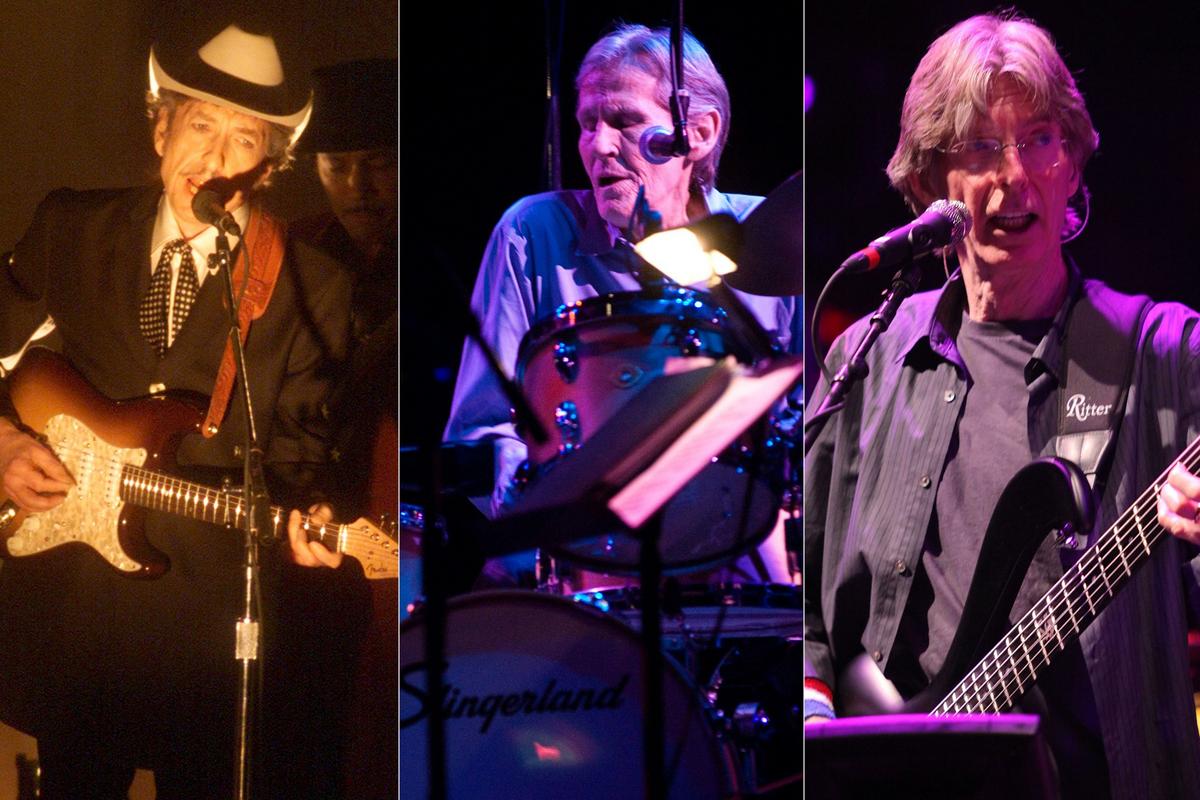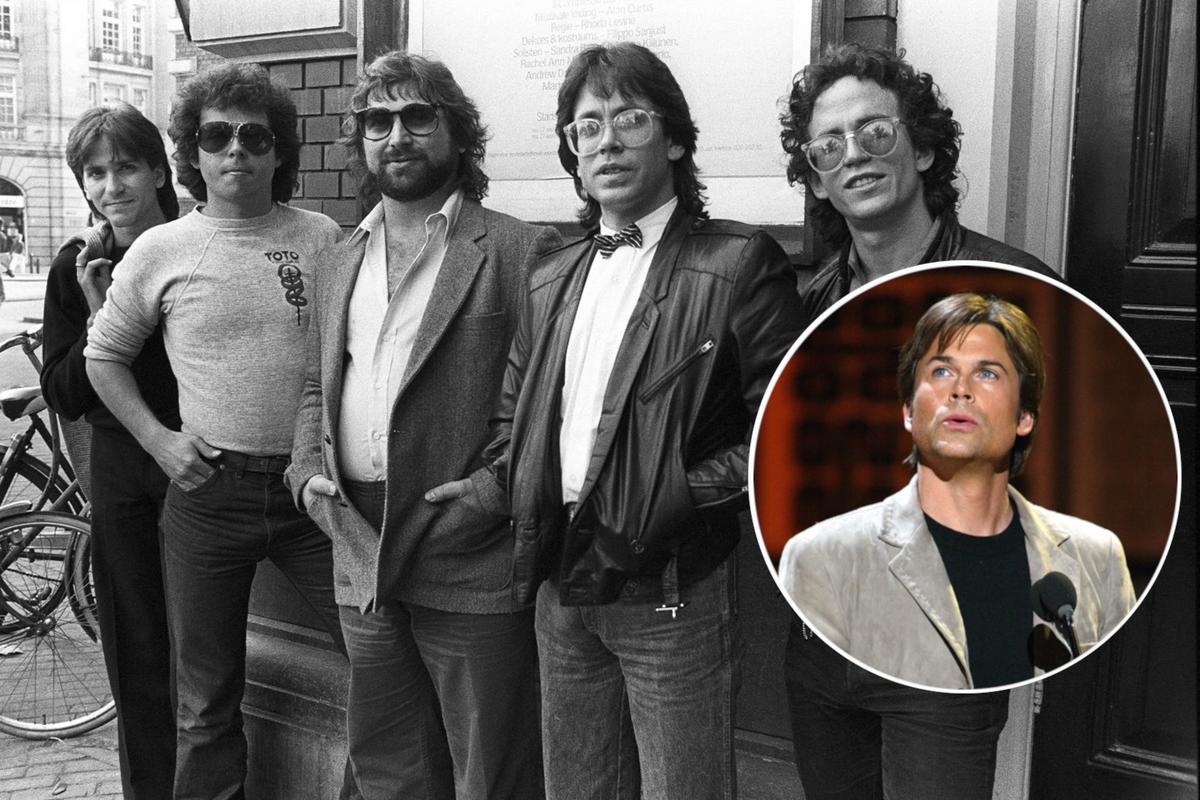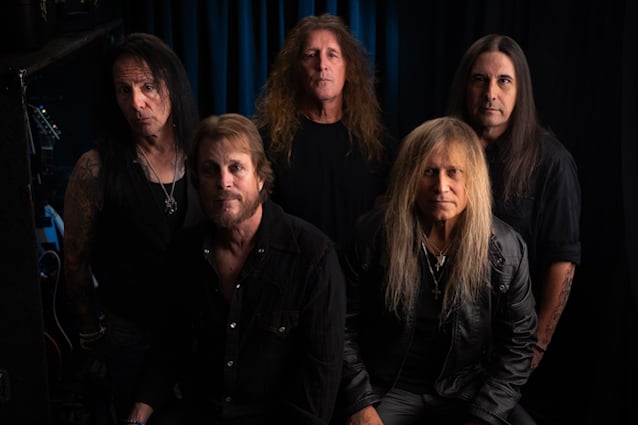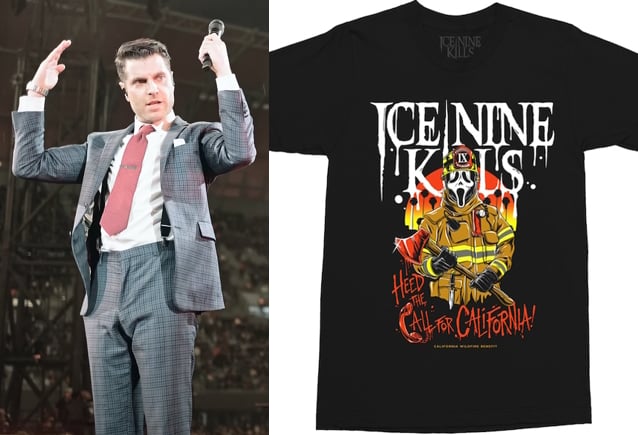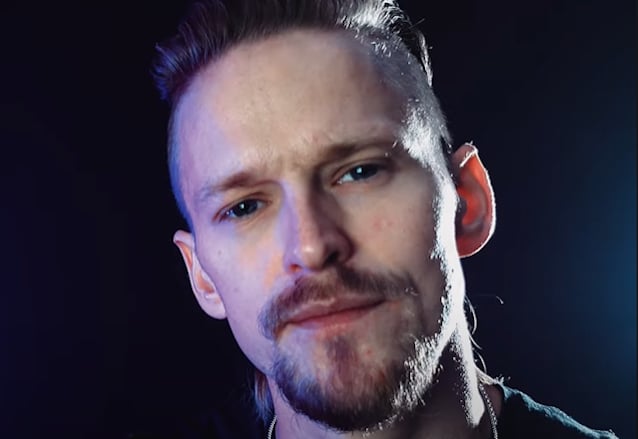Not every musician gets to tour with the real life versions of their prized record collection, but there are few people with a highlight reel like Larry Campbell and Teresa Williams have amassed.Together, they’ve worked with Jackson Browne, Phil Lesh and Friends, John Prine, Little Feat, and memorably, a lengthy run recording and touring with Levon Helm. Campbell has carved out his own career as a multi-instrumentalist with Tracy Chapman, k.d. lang, Sheryl Crow, Keith Richards and an eight year stint playing with Bob Dylan.All of the moments they spent in the background behind the banners of those famous names powered them forward collectively with a growing stack of their own albums, including 2024’s All This Time. It’s a moving set of songs which constructs a vivid bridge between their past and present, aided by a musical collective of collaborators including Little Feat’s Bill Payne. There’s even some previously unheard music with Levon Helm that finally found its way out into the world, thanks to this new album.After a busy year filled with a lot of road work, Campbell and Williams will continue to cast their musical net further out in 2025, heading overseas to Scotland to participate in the Transatlantic Sessions with Loudon Wainwright III, Jerry Douglas and others. Closer to home, they’ll also be in Florida taking part in the annual 30A Songwriters Festival in mid-January.During a conversation with UCR, they took some time to discuss the album as well as some of their famous collaborations.It doesn’t seem like there was any big masterplan in place with your latest album. You wrote songs and once you had enough songs, you made a record. That’s often a great place to start.Teresa Williams: I agree.Larry Campbell: Yeah, that’s great, Matt. There was no intentional theme. I didn’t think that one existed. It took Teresa to point out, yes, there was.Williams: Look what you did! But I could feel it coming out of the COVID thing. I could feel it birthing itself out of that. When he would show me songs, to me, it totally felt like it was coming from his COVID experience and he says he wasn’t even aware that was happening, for most of the songs.Campbell: It was a subconscious development. I see it now and I can feel it too. The thing that the whole COVID thing left me with — because I was hit really hard [when I got it]. That whole time period was devastating for a lot of people, even those who didn’t have the disease, just because of the lack of human connection. That’s the thing, I think, that had the most profound effect on me, that whole time period where we were separated from each other. I was separated from her a lot of the time and [we were all] separated from our normal daily relationships.Williams: I was quarantined in the city, down there doing physical therapy for a shoulder surgery. He was down there doing the Love Rocks benefit. When he tested positive for COVID, I was supposed to go down to Tennessee to take care of my dad, who had Alzheimer’s. I had the car rented and was going to leave the next day. He tested positive and I said, “Okay, I’ll just come up to you, instead.”Campbell: I was in Woodstock at that time.Williams: The doctor called 30 minutes later and said, “You’re not going anywhere. You’ve been exposed. You have to sit in your apartment.” [Laughs] That was tough.That’s an important piece of the story of this album as well. I’m glad we’re here having this conversation.Campbell: Yeah, there’s no doubt about it. This was as close to death as I’d been in my life experience.Williams: Well, there was the ‘60s. We’re glad you made it through the ‘60s and ‘70s, but let’s not get into that part [Laughs] I’m glad he’s lived to tell a few things there, Matt.Listen to Larry Campbell and Teresa Williams Perform ‘That’s All it Took’ With Levon HelmThere’s the long association that you two had, working with Levon Helm. So it’s cool that there’s a bit of Levon on the album. How did that work itself into the mix? Because that’s a beautiful seed to start any song with.Campbell: We were recording the Electric Dirt record. We had a free day in the studio and Levon knew that Teresa and I were planning to get a record started, our first record [together]. He said, “Why don’t we do some rhythm tracks with you guys?” We did about five of them. The first one, “You’re Runnin’ Wild,” the Louvin Brothers tune, ended up on our first record. Then we used another one, which was “Turnaround,” by Carl Perkins, on the second record. We did a live record [after that] and now for this one, we went back to the studio vault and pulled this one out, “That’s All it Took,” which was co-written by George Jones. Teresa and I had been singing that at the [Midnight] Rambles for quite a while, so we had that down pretty much.Williams: It was exciting. Larry said, “You know, I think we might still have some stuff with Levon, let me just check.”Campbell: Justin [Gulp, engineer] has the hard drives with all of those things. We found the multi-tracks and we had to replace….Byron Isaacs played bass on it originally.Williams: He’s a brilliant bass player. We love Byron.Campbell: But there were technical issues with the recording, so we put Brandon Morrison on and added his harmony [vocal] too and there’s Levon. We’re playing with Levon again. It’s great. We also added Bill Payne.Williams: You haven’t heard a shuffle until you’ve heard Levon Helm play a shuffle, okay?Campbell: That’s the truth.I think that’s pretty much a dream scenario, having Bill Payne and Levon Helm on the same song.Campbell: Yeah, c’mon.Technology is great in that way.Campbell: Yeah, it really is. And these guys, both of them, were heroes of mine when I was coming up. I think it was in 1973, a friend of mine said, “Hey, there’s this band playing down at Max’s Kansas City and some woman, Bonnie Raitt.” I’d heard of Bonnie. “And she’s playing with this band, Little Feat.” I didn’t know who they were, but I said, “Okay, great.” We went down there and Max’s was a relatively small club. We’re sitting there about 10 feet from the stage and here’s Little Feat. Imagine what that did to my brain?You’ve got Lowell George that close to you, that’s incredible.Campbell: It changed my perspective. You know, it was such new, vital music that I didn’t imagine could be done that way. Who said you could do that?Williams: I remember when my drummer boyfriend in Long Island played “Dixie Chicken” for me in his basement, I thought my head would explode. It was like, “These are my people!” Like Larry said, I couldn’t even believe this band existed. We worked with them last winter. We’d finished what we were doing and we were walking through the theater in the house to get out. I forgot what they were playing, but I can’t even believe they exist. It’s so swampy. How do you explain it all? It’s just this gumbo of….Campbell: …American music.Williams: Yeah, and raw. Kenny Gradney alone. He used to play with Delaney and Bonnie, which, that’s a whole other thing. The threads, it all makes sense.You two spent some time filling in with Little Feat.Campbell: It was insane. Fabulous. Scary. Because look, that music is not easy. You have to keep all of your senses [focused]. They’re great guys. You love making music with ‘em. It’s so uplifting and joyous.Williams: The same as Levon, just uplifting with joyous. All of the people from that era we’ve played with, honestly. The people we play with off and on, Phil Lesh and Friends [Note: this interview was conducted before Lesh’s unfortunate passing], Hot Tuna with Jack [Casady] and Jorma [Kaukonen], Jackson Browne, it’s all joyous. As we say down South, they just “eat up” with the music. John Sebastian up in Woodstock, if you go over there just to drop something off or say hi or have a bowl of soup, he’ll say, “Look at this guitar, Larry, Teresa,” he’ll hand it to me and say, “You’ve got to play this!”It’s not a two-minute stop.Williams: It’s that way with all of them. “Ooh, look at this new toy!”Campbell: They’re all still 11 year old kids with the music.Larry, you talked to a buddy of mine, Ray Padgett, for his Bob Dylan newsletter. Reading the story of how you played with Bob for three days, you guys are playing some songs from Bob’s catalog of work. But you’re also doing just some songs that are shared favorites of yours. A lot of auditions are nothing like that. So your experience with Bob there at the beginning is really something else.Campbell: It was great. I kept being told that technically, it’s not an audition. It’s whatever you call it in Bobland. But it was [mostly] hanging out for three days and playing old rock and roll and country tunes with some of his material thrown in there. It was great fun with a really good vibe. After the three days of rehearsal, if you can call it that, Jeff Kramer, his manager, says, “Okay, we’re leaving Tuesday and we’re heading to Nova Scotia, here’s the schedule.” We get out on the road and we’re doing songs, most of which I’ve never played before and many I’d never heard before. But I’d just get up there and play.I spoke with Phil Manzanera of Roxy Music earlier this year. It seems like it’s very common with people that have played with Bob, you’re stepping into this adventure that you couldn’t possibly anticipate.Campbell: Exactly, yes, yes, that and it was different from day to day. Different from tour to tour different from week to week, month to month and year to year.What’s the most interesting thing you discovered working with Bob?Campbell: It took Theresa to point this app actually was because I was in the middle of it, you know, and her observation when she come out and see us play was that you can do you don’t have to limit yourself as a performer to any one genre.Williams: It was down in Mississippi, an outdoor thing. I went way in the back with the fans and just experienced it as a fan out front.Campbell: Yeah, if you feel a connection to this type of music or that type of music and you feel like there’s something authentic in you that can interpret that music, go ahead and do it. She pointed that out and I realized how true that was. It kind of changed my whole perspective on how we would do our thing.Williams: It changed things for me as well. [On one side], I wanted to work as a singer in that field. But it was confusing, because I had this country [thing], the rock, the bluegrass. I had all of these different things — and I love jazz too! I love Billie Holiday, Sarah Vaughan and all of that stuff. Bessie Smith. It was confusing, because you could see the industry had you [boxed in]. To see Bob, was very liberating.Campbell: All of those years with Levon too, it was the same story. You know, as music director, I could bring in stuff that I thought Levon would interpret really well and he’d have stuff that you’d never think of him doing. We’d do it and all of the sudden, it would have its own genuine authenticity, just by virtue of you putting your soul into the music.A gig like that is so fun and creatively inspiring.Campbell: The best example was “Tennessee Jed.” Teresa and I were working with Phil and with Levon. We did a few shows together.Williams: We had a tour where it was co-billed, so then it was like, “Oh, which bus are we supposed to be on!” [Laughs]Campbell: You know, Levon was really admiring Phil’s thing. I was thinking as we were doing the Electric Dirt record, there’s got to be a song that will bridge these two similar, yet different ends of the spectrum bands. “Tennessee Jed” seemed perfect.Williams: It walked right in the door.Campbell: Yeah, because Levon is “Tennessee Jed.” That was a song that the Levon of the Band days, it probably never would have even been on their radar. But because of his experience with Phil and his personality and his ability to make every song his own, it worked out great. There were lots of examples like that.Listen to Levon Helm’s Version of ‘Tennessee Jed’ by the Grateful DeadThe Stories Behind 20 Bob Dylan Album CoversLooking back at the artwork chosen by the famously enigmatic songwriter.Gallery Credit: Allison RappNext: How the Band’s ‘Music From Big Pink’ Changed Music Forever
